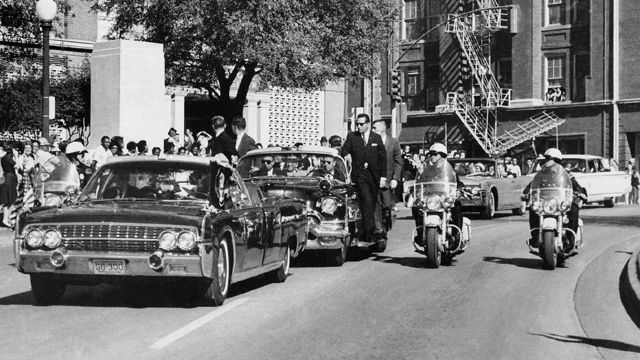This post first appeared in ThinkProgress.

Inverne spoke with the BSO’s librarian William Shisler, who was one of the first people to know that President Kennedy had been fatally shot and who pulled the sheet music to Beethoven’s “Eroica” Symphony for the musicians and then waited to hear how the audience would react:
In the short pause before the conductor strode out with his own heavy burden, Shisler walked, in something of a daze, back into the wings and then out to the auditorium where he took up his favored listening position, at the back of the first balcony where he could hear but not see. The entrance to the library is nearby and he would sometimes slip through the balcony door to listen in during rehearsals and concerts. He was an accustomed presence there, none of the ushers would have detected anything unusual. Everything seemed normal.
Only Shisler knew how different this concert was about to be. “I was standing there,” he says, haltingly, trying to express the strangeness of the moment, “knowing he was going to make the announcement and I was about to witness that moment. I had already had my own gasp upon hearing the news and now I’m standing there witnessing the audience about to have the same reaction. When it came, of course Leinsdorf came out and announced to the audience and there was this huge gasp, it was very emotional.”
Some people left, rushing out in grief. But most, he says, stayed as the orchestra played. Many cried. Shisler was among them. “I was brought to tears by the movement of Beethoven. It’s such beautiful music anyway.”
It’s a remarkable moment, one in which the audience reacts, but the music provides space for those who stayed to reflect on the dreadful news they’ve just heard. Sometimes, culture is directly engaged with politics. And sometimes culture dramatically removed from our political context can help us come to terms with a dreadful political reality.


